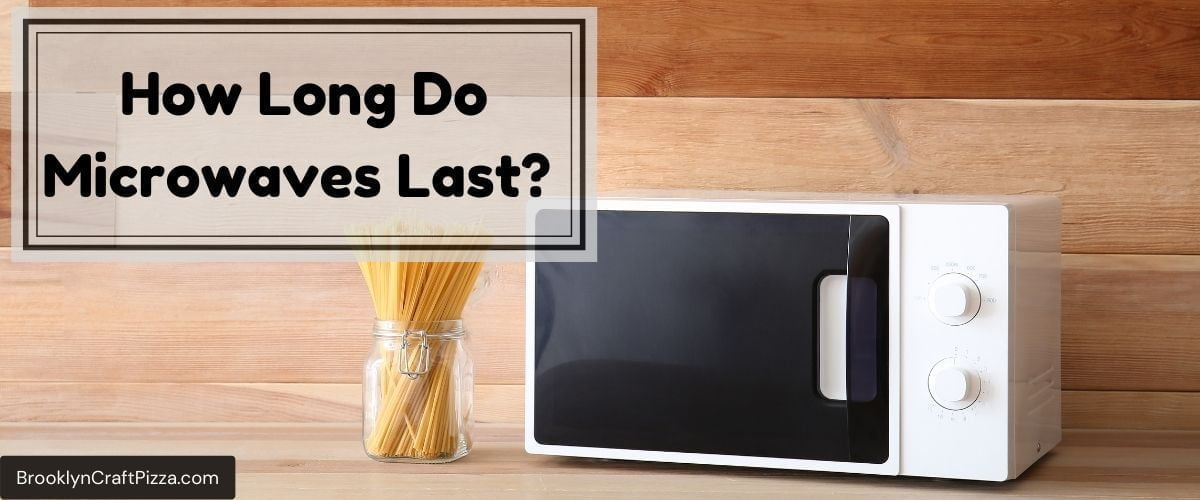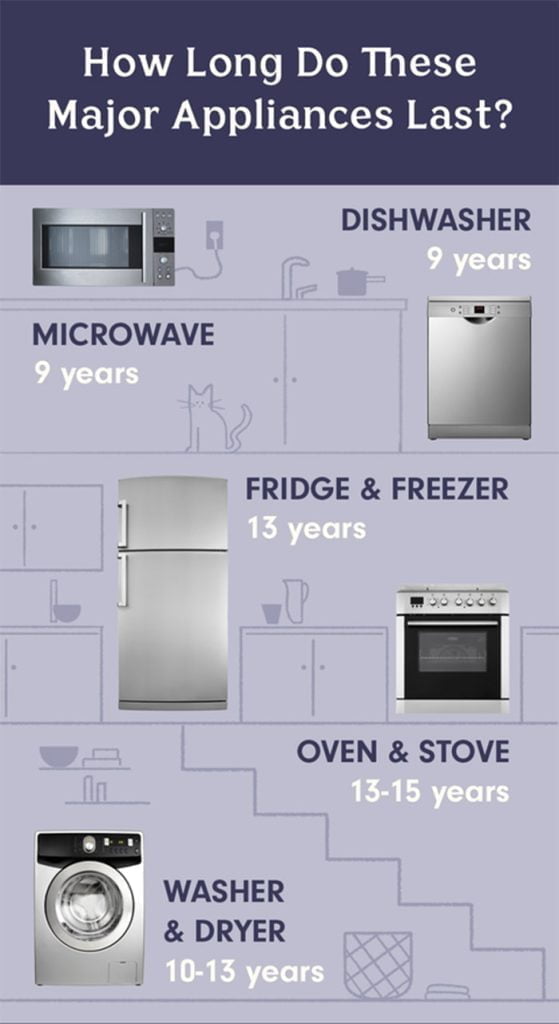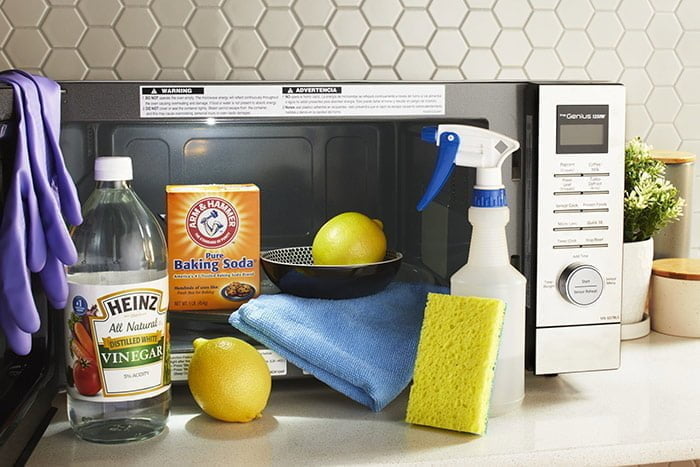

How Long Do Microwaves Last – Detailed Answer & Tips
When it comes to kitchen appliances, microwaves are one of the most popular. They’re quick, easy to use, and can heat up food in a matter of minutes. When you invest in a microwave, you want to make sure that it lasts as long as possible.
But how long do microwaves last? What can you do to extend the lifespan of your microwave? And when is it time to replace them?
We’ll answer these questions and more in this post. So, read on to learn everything you need to know about how long do microwaves last typically.
In this blog post, we’ll take a closer look at microwaves and their lifespan. We’ll also discuss some tips for prolonging the life of your microwave. So whether you’re considering buying a microwave or you’ve had one for years and want to make sure it lasts as long as possible, this post is for you!
How Long Do Microwaves Last
What Factors Affect The Lifespan Of Microwaves
To answer the question “How long do microwaves last?”, first of all, we need to know the factors that affect the lifespan of the microwave oven
There are several factors that can affect the lifespan of your microwave. These include:
1) Usage
The more you use your microwave, the shorter its lifespan will be. If you use your microwave multiple times a day, it will likely need to be replaced sooner than if you only use it once a day.
2) Age
Just like any other appliance, microwaves will eventually wear out with age. The older your microwave is, the more likely it is that it will need to be replaced.
3) Type of microwave
The type of microwave you have will also affect its lifespan. For example, built-in microwaves tend to last longer than countertop models. This is because they’re typically made with higher quality materials and are better able to withstand wear and tear.
4) Quality
The quality of your microwave also plays a role in how long it will last. Higher-quality microwaves tend to have longer lifespans than lower-quality ones.
5) Maintenance and Care
If you take good care of your microwave and keep it clean, it will last longer than if you neglect it. Regular maintenance and cleaning can help to extend the life of your microwave.
Properly caring for your microwave will also help extend its lifespan. This includes cleaning it regularly (both inside and out) and making sure that the door seals are tight and free of any holes or cracks.
6) Climate
The climate you live in can also affect the lifespan of your microwave. If you live in a hot, humid climate, your microwave is more likely to experience problems than if you live in a cooler, drier climate.
7) Environment
The environment in which your microwave is stored can also affect its lifespan. For example, if you live in an area with high humidity, your microwave may rust sooner than if you lived in a drier climate.
8) Repairs
If you do experience any problems with your microwave, it’s important to have them repaired as soon as possible. Ignoring repairs can cause further damage and shorten the lifespan of your microwave.
9) Manufacturer
The manufacturer of your microwave also plays a role in how long it will last. Some brands are known for making high-quality, durable products that last for years. Other brands are not as reliable and may not make microwaves that last as long.
These are just some of the factors that can affect the lifespan of your microwave. Keep in mind that even if you take good care of your microwave, it will eventually need to be replaced.
The Average Lifespan Of Microwaves
So, How long do microwaves last? On average, a microwave will last about 9 to 10 years with proper maintenance. However, this number will vary depending on the make and model of your microwave, as well as how often you use it.

On average, most microwaves will last about 10 years before they need to be replaced. But if you take good care of your microwave and don’t use it too often, it could last even longer.
For example, if you only use your microwave to heat up food a few times a week, it will last longer than if you’re using it multiple times a day. And if you have a higher-end or commercial-grade microwave, it will also have a longer lifespan than a cheaper model. What about commercial ovens, see more on our website.
If you take good care of your microwave and don’t use it too often, it could last up to 15 years or more. If you take good care of your microwave and don’t use it too often, it could last even longer.
But sooner or later, all microwaves will need to be replaced. But if you use it multiple times a day and don’t clean it regularly, it may only last for a few years.
So, while the average lifespan of a microwave is 10 years, with proper care and maintenance, your microwave could last much longer. However, some microwaves may only last for 5 years while others can last for 15 years or more.
When it’s time for a new microwave, there are a few things to keep in mind.
First, consider the size of your kitchen and the features you want. There are many different types of microwaves on the market, so it’s important to find one that meets your needs and fits your budget.
You should also consider the warranty and customer service options offered by the manufacturer.
With so many different types of microwaves on the market, it can be difficult to choose the right one for you. But if you take your time and do your research, you’ll be able to find the perfect microwave for your needs.
Other Things Related To How Long Do Microwaves Last
You’re Shortening the Life of Your Microwave
You may not realize it, but there are some things you’re doing that could shorten the life of your microwave. Here are some of the most common:
❌ Using it to cook food: One of the most common ways people shorten the life of their microwaves is by using it to cook food. While microwaves are great for reheating food, they’re not designed for cooking.
So, if you’re using your microwave to cook food, you could be shorten its lifespan.
❌ Using it to heat water: Another way people shorten the life of their microwaves is by using it to heat water. While microwaves are great for heating up coffee or tea, they’re not designed for boiling water.

So, if you’re using your microwave to heat water, you could be shorten its lifespan.
❌ Overloading it: Another way people shorten the life of their microwaves is by overloading it. When you overload your microwave, it has to work harder to heat the food. And this can shorten its lifespan.
❌ Microwaving certain foods: You probably know that microwaving some foods, like eggs, can be dangerous. But did you know that microwaving certain foods can also shorten the lifespan of your microwave?
For example, microwaving greasy foods can cause a build-up of grease on the inside of your microwave. And this can shorten its lifespan.
So, if you’re going to microwave food, make sure it’s not greasy. And if it is, make sure to clean your microwave afterwards.
❌ Microwaving other things that aren’t microwave-safe: Just like microwaving certain foods can shorten the lifespan of your microwave, microwaving other things that aren’t microwave-safe can also shorten its lifespan.
For example, microwaving metal can cause sparks and fires. And this can damage your microwave and shorten its lifespan.
So, if you’re going to microwave something, make sure it’s microwave-safe. And if it’s not, don’t do it.
❌ Slamming the door: Every time you slam the door shut, it puts stress on the hinges, latch and frame. Over time, this can cause these parts to break or wear out prematurely.
❌ Running it while it’s empty: Every time you turn on your microwave, it has to work to generate the heat. If you run it while it’s empty, it has to work harder than it needs to. And this can shorten its lifespan.
❌ Running it on the wrong circuit: If you run your microwave on the wrong circuit, it can cause a power surge. And this can damage the appliance and shorten its lifespan.
❌ Pushing the weight limit: Every microwave has a weight limit. And if you exceed this limit, it can damage the appliance and shorten its lifespan.
❌ Not cleaning it: Finally, one of the most common ways people shorten the life of their microwaves is by not cleaning it. Microwaves need to be cleaned regularly to prevent build-up from happening.
And if you don’t clean your microwave, you could be shorten its lifespan.
❌ Not giving it space: Microwaves need to have proper airflow to function properly. If yours is wedged in too tight, it could overheat and cause damage.
❌ Not following instructions: Every microwave is different. And each one has its own set of instructions. If you don’t follow the instructions, you could damage the appliance and shorten its lifespan.
❌ Microwaving stainless steel mugs: If you’re using a stainless steel mug, it could cause sparks. And these sparks could damage the appliance and shorten its lifespan.
So, there you have it. These are some of the most common ways people shorten the life of their microwaves. If you’re doing any of these things, you may want to stop. Otherwise, you could shorten the life of your microwave.
Tips For Prolong The Life of Your Microwave
Now you know the answer the question how long do microwaves last, as well as some things you are doing that could shorten the life of microwave oven. So, how do you prolong the lifespan of your microwave?
There are several things you can do to prolong the lifespan of your microwave and keep it working like new for years to come. Here are some tips:
1) Use it regularly
If you use your microwave regularly, it will stay in good condition and last longer. This is because regular use helps to keep all the parts working properly and prevents them from rusting or corroding.
2) Follow the manufacturer’s instructions
When it comes to using and cleaning your microwave, it’s important to follow the manufacturer’s instructions. Every microwave is different, so it’s important to read the manual before using it. This will help you avoid damaging the appliance and extend its lifespan.
3) Avoid using it for tasks it wasn’t designed for
Another way to prolong the lifespan of your microwave is to avoid using it for tasks it wasn’t designed for. For example, don’t use it to heat up oils or greasy foods, as this can cause the interior to get dirty quickly.
4) Don’t overuse it
If you want your microwave to last a long time, make sure you don’t overuse it. Try not to use it more than necessary, and if possible, allow other appliances to do some of the work.
If you find that you are using it more than necessary, try unplugging it for a few days each week to give it a rest.
5) Be careful not to overload it
One of the most common causes of microwaves breaking down prematurely is overloading. This happens when people try to cook too much food at once or put too many dishes in the appliance.
To avoid this, be sure to only cook small amounts of food at a time and leave some space between dishes.
6) Clean it regularly
One of the best ways to prolong the life of your microwave is to clean it regularly. Microwaves can get dirty quickly, so it’s important to clean them often. This will help to prevent any build-up of dirt or grease, which can cause problems.
This includes wiping down the interior and exterior surfaces with a damp cloth or sponge. You should also clean the inside of the microwave by running it empty with a cup of water for a few minutes each week.
Wipe down the interior after each use, and deep clean it with soap and water (or a vinegar solution) every few months. Don’t forget to clean the exterior as well!
Avoid using harsh chemicals or abrasive cleaners on your microwave. These can damage the surface of your microwave and lead to premature wear and tear.
7) Inspect it regularly
Inspect your microwave regularly for any signs of damage or wear and tear. If you see any, be sure to have them repaired as soon as possible.
This means looking for any signs of damage, such as cracks in the shell or door, and making sure that the seals are tight. If you notice any problems, be sure to have them fixed as soon as possible.
8) Replacing parts
If any parts of your microwave are damaged or worn out, be sure to replace them as soon as possible. This includes light bulbs, filters, and even the power cord if it’s frayed or damaged.
Even small damages can cause problems down the road, so it’s best to take care of them as soon as possible.
9) Store it properly
When not in use, be sure to store your microwave properly. This means keeping it in a cool, dry place away from direct sunlight.
By following these tips, you can help to prolong the life of your microwave and make it last longer. Remember that even with proper care, microwaves will eventually need to be replaced.
How To Clean And Maintain Your Microwave
Cleaning your microwave regularly is the best way to keep it in good condition and extend its lifespan. Here are some tips on how to clean and maintain your microwave:
✅ Unplug the appliance before cleaning it.
✅ Use a mild, non-abrasive cleaner to wipe down the interior and exterior of the microwave.

✅ Avoid using harsh chemicals or cleaners, as they can damage the surface of the microwave.
✅ Clean the seals around the door regularly to prevent food from becoming trapped there.
✅ Remove any food particles from the interior of the microwave after each use.
✅ Once a month, deep clean the inside of the microwave by placing a bowl of water inside and microwaving it for 3 minutes. Then, wipe down the inside of the appliance with a damp cloth or sponge.
✅ If your microwave has a removable turntable, make sure to clean it regularly as well.
✅ Avoid using metal containers, as they can cause sparks that can damage the appliance.
✅ Never operate the microwave empty, as this can damage the heating element.
✅ Follow the manufacturer’s instructions when using your microwave.
✅ If you notice any problems with your appliance, consult with a qualified repair person.
By following these tips, you can keep your microwave clean and extend its lifespan.
And if you ever notice any problems with your appliance, don’t hesitate to call a qualified repair person. They’ll be able to diagnose the problem and let you know if it can be fixed or if you need to buy a new microwave.
When To Replace Your Microwave
Even if you take good care of your microwave, there will come a time when you need to replace it. Here are some signs that it’s time for a new microwave:
1. It’s more than 10 years old
If your microwave is more than 10 years old, it’s probably time to replace it. Even if it’s still working properly, the technology in newer models is much improved.
2. It doesn’t work as well as it used to
If your microwave isn’t working as well as it used to, it’s probably time for a new one. Over time, microwaves can start to lose their power and efficiency.
3. It doesn’t heat food evenly anymore
One of the most common signs that a microwave is no longer working properly is if it doesn’t heat food evenly. This can be frustrating, especially if you’re trying to cook something delicate like eggs or fish.
4. It takes longer to cook food than
If your microwave is taking longer to cook food than it used to, it’s probably not as efficient as it once was. This is because the magnetron, which is responsible for generating heat, deteriorates over time.
5. It needs repairs frequently
If you find yourself repairing your microwave frequently, it’s probably time for a new one. Constant repairs can be expensive, and a new microwave will likely be cheaper in the long run.
6. The door doesn’t close properly or seal tightly
Another common problem with older microwaves is that the door doesn’t close properly or seal tightly. This can cause hot air to escape and make it more difficult to cook food evenly.
7. The paint is chipped or the surface is scratched
If the paint on your microwave is chipped or the surface is scratched, it might be time to replace it. This is because the scratches can trap food and bacteria, which can be dangerous to your health.
8. It doesn’t match your other appliances
If your microwave is outdated or doesn’t match your other appliances, it might be time for an upgrade. A new microwave can add value to your home and make your kitchen look more modern.
9. You want a newer model
Even if your microwave is still working properly, you may simply want a newer model. Microwave technology is constantly improving, so there’s always something new to choose from.
Summary:
In general, you should replace your microwave when it stops working properly or is no longer able to heat food evenly.
However, if you’ve had your microwave for 10 years or more, it’s probably time to replace it even if it’s still working fine. This is because microwaves tend to lose their efficiency over time and may not last much longer.
If you notice any of these problems, it’s time to start shopping for a new microwave. You can either buy a new one outright or look for a replacement model from the same manufacturer.
If you’re not sure whether or not it’s time to replace your microwave, the best thing to do is consult with a qualified appliance repair person. They’ll be able to diagnose the problem and let you know if it can be fixed or if you need to buy a new microwave.
No matter what the reason, if you’re thinking about replacing your microwave, it’s important to do your research and choose the best option for you. There are many different types and models of microwaves on the market, so it’s important to find one that meets your needs and fits your budget.
When shopping for a new microwave, keep in mind the size of your kitchen and the features you’re looking for. You should also consider the warranty and customer service options offered by the manufacturer.
With so many different types of microwaves on the market, it can be difficult to choose the right one for you. But if you take your time and do your research, you’ll be able to find the perfect microwave for your needs. And with proper care, it will last for years to come.
Replacing your microwave may seem like a hassle, but it’s important to do it when necessary. A new microwave will not only heat food more evenly and efficiently, but it will also be safer to use. And, of course, it will have a longer lifespan than your old one.
So, there you have it – How long do microwaves last! Now you know everything you need to know about microwaves and their lifespan.
Remember to clean yours regularly and avoid overloading it, and your microwave will last for years to come. And if you ever notice any problems with your appliance, don’t hesitate to replace it.
Repair Or Replace: When Is It The Right Choice For You?
As you have seen above about how long do microwaves last, microwaves don’t last forever. But with proper care and maintenance, they can last for many years. If your microwave does break down, it’s important to know whether it’s worth repairing or if you should replace it.

If you’re like most people, you probably don’t think about your appliances until they stop working. But when an appliance does break down, it’s important to know whether it’s worth repairing or if you should replace it.
Here are some factors to consider when making the decision:
✅ The Cost Of Repair: One of the most important factors to consider is the cost of repair. If the cost of repair is more than half the cost of a new appliance, it’s probably not worth fixing.
✅ The Age Of The Appliance: Another factor to consider is the age of the appliance. If it’s more than 10 years old, it may be time to start thinking about replacing it.
✅ The Severity Of The Problem: Another factor to consider is the severity of the problem. If it’s a minor issue, it may be worth repairing. But if it’s a major issue, it’s probably best to replace the appliance.
✅ The Availability Of Parts: Another factor to consider is the availability of parts. If the parts are no longer available or if they’re difficult to find, it may be time to replace the appliance.
✅ Your Warranty: Finally, you should also consider your warranty. If your appliance is still under warranty, you may be able to get it repaired for free.
When deciding whether to repair or replace your appliance, there are many factors to consider. But ultimately, the decision comes down to cost and convenience. If the cost of repair is more than half the cost of a new appliance, it’s probably not worth fixing.
And if the appliance is more than 10 years old, it’s probably time to start thinking about replacing it. But if the problem is minor and the parts are available, it may be worth repairing. And if your appliance is still under warranty, you may be able to get it repaired for free.
And if your appliance is still under warranty, you may be able to get it repaired for free. Disposing of microwaves responsibly, unplug the appliance and remove any food or debris, release the button that can be pressed to detach the door, disconnect all of the wirings, recycle the materials.
The Cost Of Repairing Or Replacing Microwaves
The cost of repairing or replacing microwaves can vary depending on the problem. But in most cases, it’s more cost-effective to replace the appliance than to repair it.
For example, a new microwave will typically cost between $100 and $200. But if the problem is with the heating element, the cost of replacement can be as high as $500.
And if the problem is with the control panel, the cost of replacement can be as high as $1,000. So, in most cases, it’s more cost-effective to replace your microwave than to repair it.
If you’re not sure whether to repair or replace your microwave, you can always consult with a qualified repair person. They’ll be able to diagnose the problem and let you know if it can be fixed or if you need to buy a new microwave.
How To Dispose Of An Old Microwave Safely And Responsibly
When it’s time to dispose of an old microwave, it’s important to do it safely and responsibly. The first step is to find out if your local landfill will accept microwaves.
Some landfills will not accept microwaves because they contain harmful chemicals. If your local landfill does not accept microwaves, you’ll need to find another way to dispose of them.
One option is to take it to a recycling center. Many recycling centers will accept microwaves and recycle them properly.
Another option is to donate your microwave to a local charity or thrift store. This is a great way to get rid of an old appliance and help someone in need.
And finally, you can always contact the manufacturer of your microwave and ask them how to dispose of it properly.
Most appliances can be taken to your local recycling center or landfill. But because microwaves contain hazardous materials, you’ll need to check with your local government for specific disposal instructions.
You can refer to our article “How To Dispose Of A Microwave?” for more detailed information on how to dispose of your old microwave oven.
FAQs on How Long Do Microwaves Last
What are the signs that a microwave is going bad?
– Diminished cooking power
– Slow cook times
– Inconsistent results
– Sparking or arcing in the oven
– Strange noises coming from the oven
– Smoke or burning smells coming from the oven.
If you notice any of these signs, it’s time to start shopping for a replacement microwave.
What is the average lifespan of a microwave?
Is a 20 year old microwave safe?
Microwaves older than this may not meet current safety standards and could pose a fire or electrical hazard. If you have an older model microwave, it is best to replace it with a newer, safer model.
What brand of microwave lasts the longest?
Is it worth it to repair a microwave?
However, if the repairs are relatively inexpensive and the microwave is still fairly new, then it may be worth repairing it.
Do old microwaves leak radiation?
What are the consequences of using a microwave with a broken door?
For this reason, it is important to repair or replace the microwave with a broken door as soon as possible.
Do microwaves get weaker over time?
What material should you never put in your microwave?
– Metal foil
– Takeout containers with metal handles
– Plastic wrap
– Plastic bags
– Wax paper
If you accidentally put one of these materials in your microwave, unplug the oven immediately and do not use it until it has been checked by a qualified technician.
Fianl Thought
Microwaves are a staple in most households, but exactly, how long do microwaves last ? Depending on the model and use, microwaves can last anywhere from 5 to 10 years.
If you’re experiencing problems with your microwave, there are a few things you can try before deciding to replace it. If those attempts don’t work or if your microwave is too old, then it may be time for a new one.
If your microwave is giving you problems or if it’s just old and outdated, this guide will help you make the decision whether to repair or replace it.
We hope this article ” How long do microwaves last” has been helpful and that you will keep these tips in mind when your microwave eventually needs replacing. If you have any questions that we haven’t answered here, please feel free to reach out to us and we’d be happy to chat with you.



